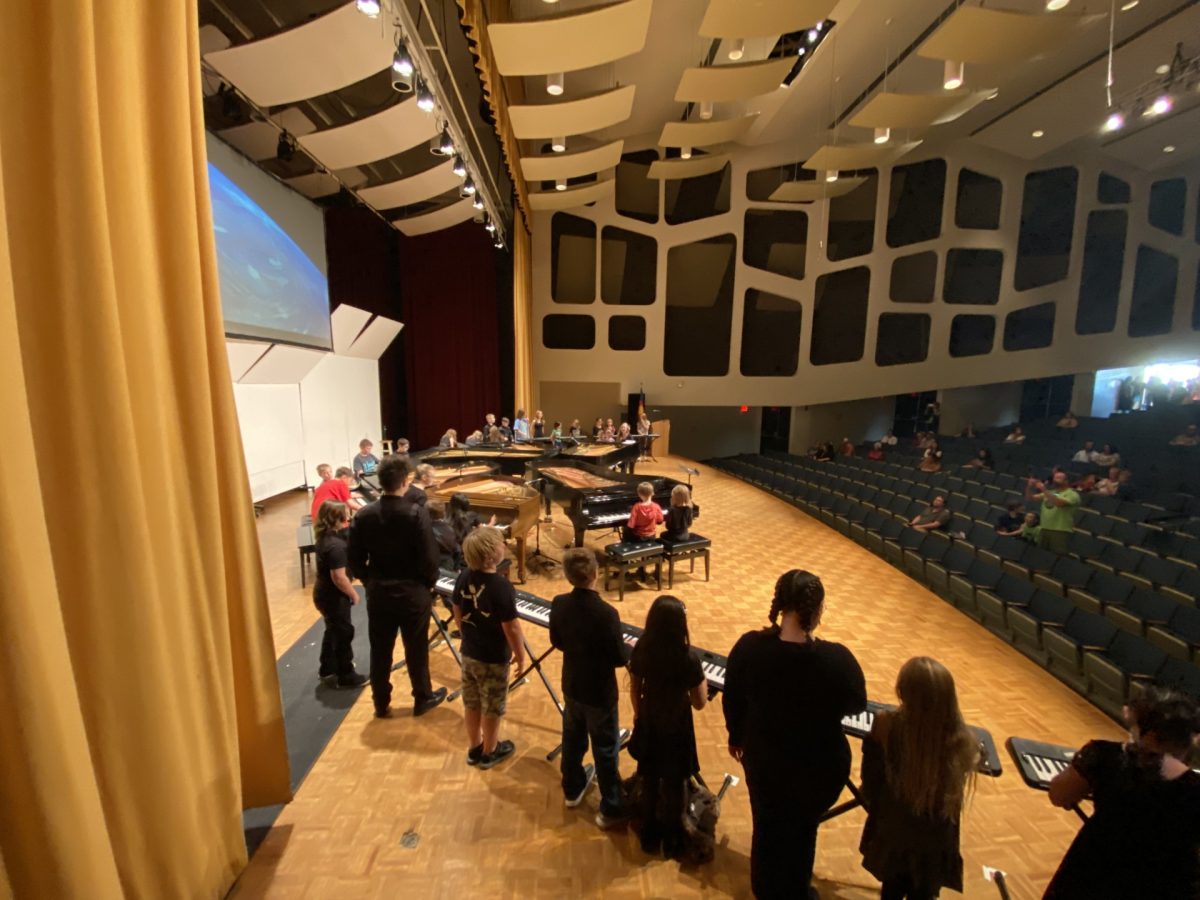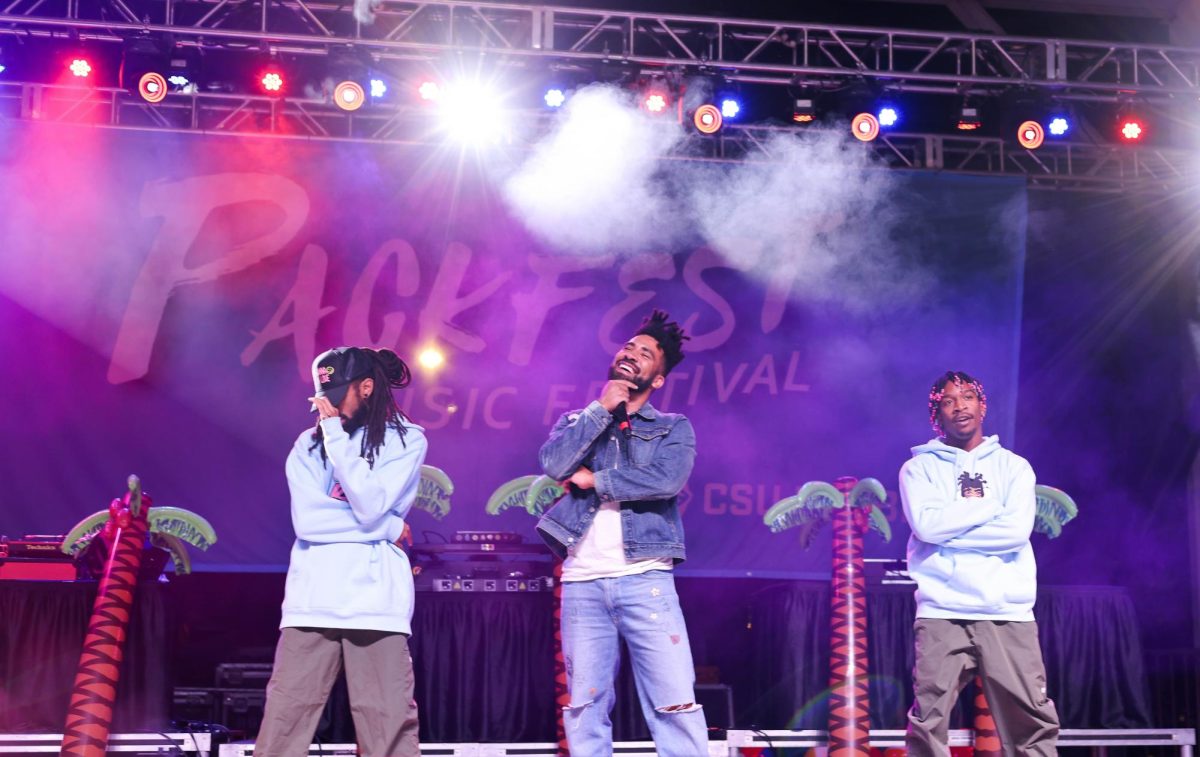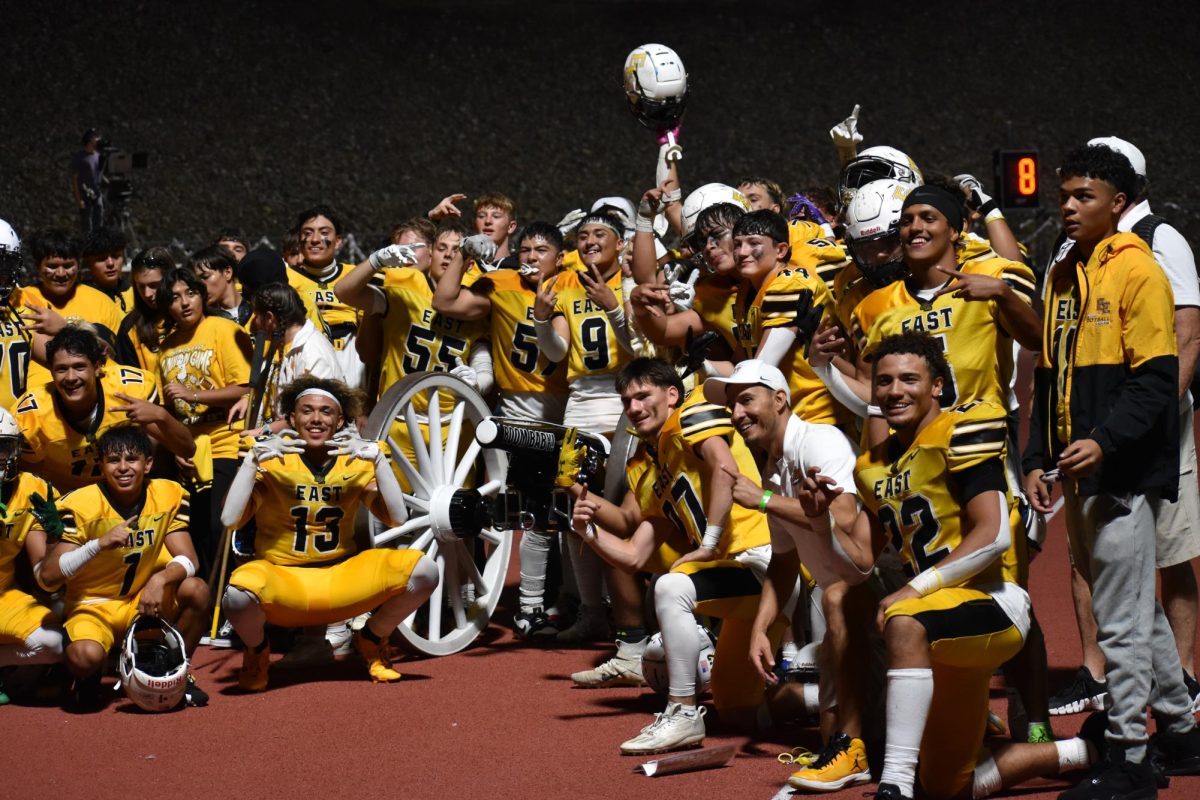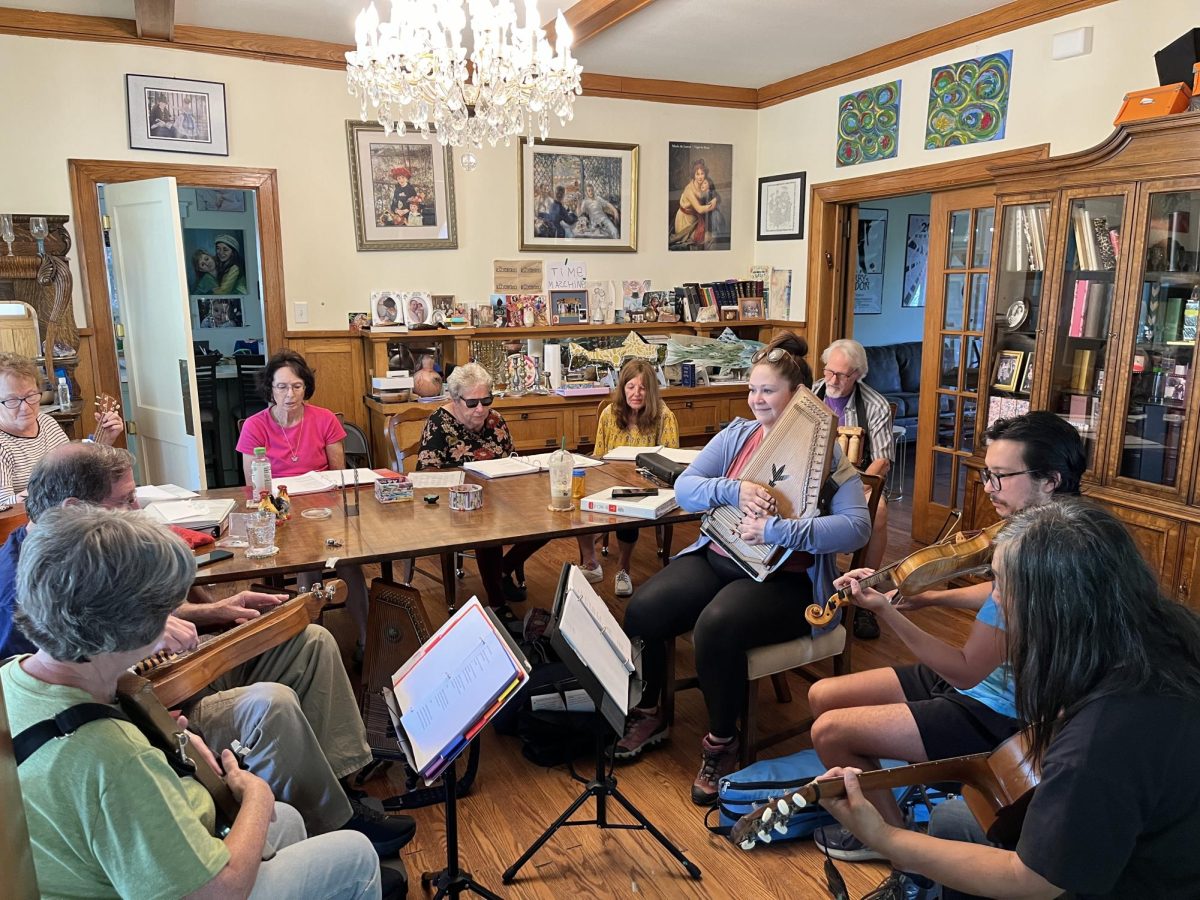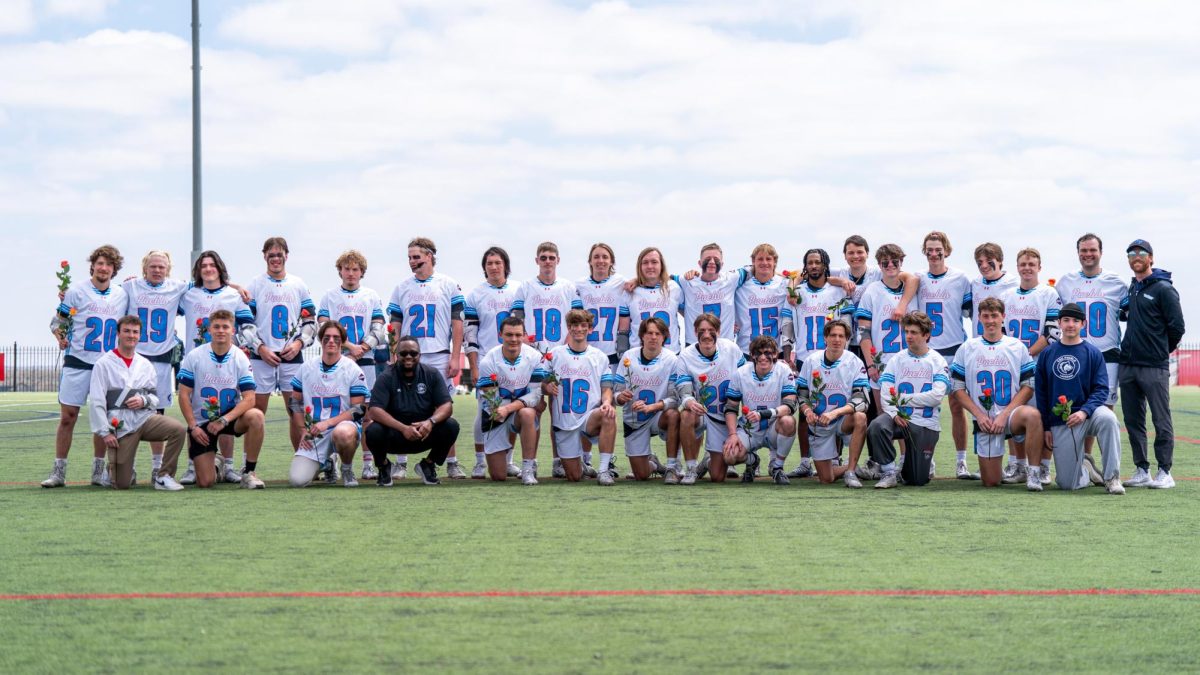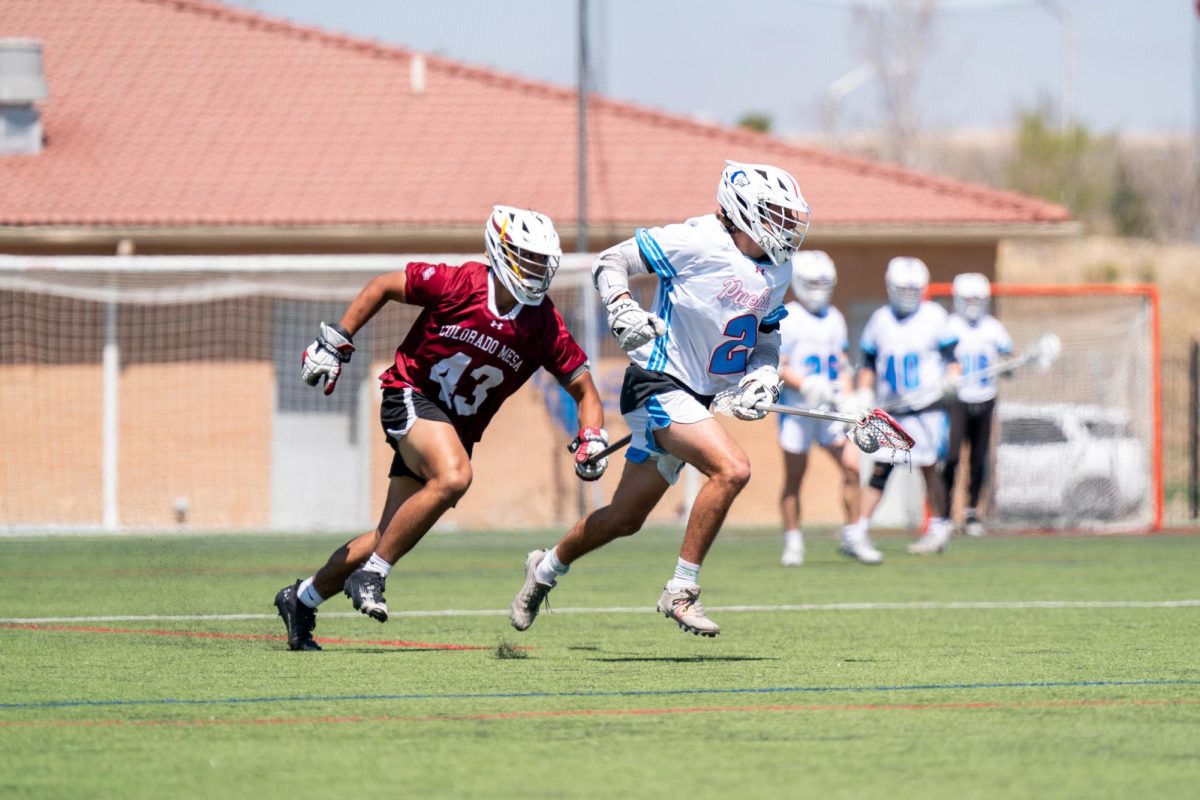
It’s been reported, as recently as a February 2008 study by the Pew Internet & American Life Project, that more than half of Americans over the age of 18 play video games, with 57 percent of the 1,102 survey respondents coming from those that have at least some college education.
Ken Cross, 26, a senior majoring in business management at Colorado State University-Pueblo, is one of many students around the country involved in video gaming. Maybe Cross knew the statistics when he proposed the formation of a video game room to CSU-Pueblo faculty and staff– or maybe not.
Originally from Virginia, Cross, the Senator of Student Activities for the Associated Students’ Government and president of the Electronic Entertainment Student Organization, spent two tours in Iraq and two years at Pueblo Community College before coming to CSU-Pueblo.
He said these past experiences, as well as a list he made of things nowhere to be found on campus, made the game room idea so appealing.
“The first thing that came to mind was the video game room, without a doubt,” Cross said. “They don’t have this; they need this because it will have that same power that it had on all the other locations that I’ve experienced. I figured this was something I could really work on.”
The “power” that Cross describes is one that he remembers vividly while in Iraq. Although he said he was never a gamer before his time in the military, and even thought it was a “waste of time,” his experience with one particular Xbox game changed all that.
“For Xbox, Halo was the big thing – it was really huge,” Cross said. “It really seemed to have a power of drawing people you know. Also people like me who previously didn’t care about video games.”
Cross got hooked on the competitiveness of gaming and said he admits not being good at the game can be difficult. But eventually, everyone started looking forward to the social event day-in and day-out.
“People got into it. There’s frustration at first, but once you get into the competition and you’re not the bottom of the food chain all the time, then it becomes fun,” Cross said. “It really has that power of bringing people together (and) socializing.”
“People would link up their Xboxes and it was something while in Iraq (that) we got to a point everyday where we would be looking forward to this – it was the highlight of everybody’s day,” he said.

Lucky for him, there was more on the horizon during his second tour in Iraq. He said the location where he was stationed, Camp Sykes, featured an MWR (Morale, Welfare and Recreation).
MWR is a program that is a center for enriching the lives and working environments, as well as supporting a sense of community, for soldiers, family members and civilians, the Fort Bliss MRW website states.
According to the website, “MWR provides Soldiers and their family members with many fitness, entertainment and family support outlets.”
At Camp Sykes, Cross said he remembers the game room, featuring around 10 Xbox consoles on one side and 10 Playstation consoles on the other, retaining the same, if not more, popularity than during his first tour.
“It was such a popular thing that there were always people waiting in line,” Cross said. “There was hardly ever downtime where you wish people would come and play you.”
But it didn’t stop there, he said. After his second tour was over, the soldiers that returned still wanted gaming to be a part of their lives.
“After we came back, it was embedded in everybody,” Cross said. “They started holding these Halo parties at their homes and inviting people (and) it really grew on people. The people that you knew that didn’t play before now had Xboxes, getting all the games and were now really into it.”
This is the exact thing that Cross said he would like to bring to the CSU-Pueblo campus through creating a game room.
Cross is proposing the game room through the student organization, the EESO. Cross serves as president of the EESO, which was formed after he was in the process of getting the project approved, and much after dreaming it up.
After speaking with Nicky Damania, director of Student Activities, and Ramon Garcia, director of auxiliary services, at CSU-Pueblo, Cross formed a plan for the room and gathered people interested in its construction. After several weeks of discussions and meetings, Cross said Damania advised him to hold a video game tournament.
However, there was one problem: funding.
“Along the way, we realized, ‘Where are we going to get the money from’?” Cross said.
With a refurbished console hovering around $150, and Cross’ expectation of a two setup game room with two consoles, two HDTVs, extra controllers and four games (two different games, one for each console), the price can rack up quickly.
The estimation is roughly between $1200 and $1300, Cross said, which may be slightly steep for the average college student, so Cross set out to find funding for his idea.
More meetings followed after the realization, however Cross said he noticed one person specifically that seemed dedicated to help – Jade Hill.
Hill, 32, an art major, showed up consistently at the meetings, played video games frequently and knew how to setup and hook up electronics, Cross said.
Soon after, Cross met with Damania again and discussed possible funding opportunities only to settle on one – creating an organization to generate funding for the tournament and, eventually, the game room.
“(I was) not sure exactly where to go with that,” Cross said. “I kind of thought we would toss it around like a joke – I didn’t really think we would get into it. I guess at first I wasn’t taking it so seriously.”
While Cross said he wasn’t too set on the idea, Hill was. He came up with a name for the organization and not long after, created a logo to go along with it.
Cross asked his soon-to-be vice president why he chose “Electronic Entertainment,” and Hill told him it was all about being broad.
While many students play video games, many also may not. By broadening their range, Hill said the club can focus on entertainment and not just gaming.
Although Cross said he was skeptical about the direction of the club at first, he said he changed his mind about having the focus solely on video games and those that play them.
“(At first) I was thinking video games, yeah!” Cross said. “But now, I wish that we would have made it broader.”

According to the CSU-Pueblo website, “Electronic Entertainment’s knowledge and expertise will help to further enhance the individual student experience involving electronic entertainment.”
The next step was finding members. A student organization proposal needs five signatures to start a club. They got there, barely. Cross said he admits some positions were “fill-ins” of people that weren’t actually interested but put their name down so the club could be started.
“We kind of started out really rough – we had to learn the process of it all,” Cross said.
As everything settled down and members got focused on the club, Cross said he and Hill wanted to make the club organized, while adding in some personal touches along the way.
“Every club is different, but pretty early on we decided that we wanted to be structured,” Cross said. “I have been introducing things that other clubs don’t introduce such as rank insignia.” We’d like to put a touch of military in there, as well,” referring to the military history of himself and Hill.
As Cross and the rest of the club started finding additional ways to collect funding and dictate their parliamentary procedure, Cross said he came in contact with the Zav Dadabhoy, dean of student life and development at CSU-Pueblo. Dadabhoy told Cross to forget about all the other methods he was focusing on, and to put all his energy into creating a logistics sheet, he said.
Since then, Cross said he has been meeting frequently with Dadabhoy, discussing the terms and resources needed to make the video game room a reality, all the while focusing on recruiting new members through meetings and on-campus events.
However, on May 1, Cross gives up his torch as EESO president and leaves his dreams of bringing a game room to CSU-Pueblo, to walk across the grand stage at graduation.
Although he said he feels “scared and excited” to graduate from college, Cross admits that he did poorly in high school. The military, Cross said, was the reason he gave up getting subpar grades and turned them into dean’s list honors.
“The switch flipped on in my head. It’s like, ‘you don’t want to be this person.’ I didn’t want to feel like that,” Cross said. “I got to a point where I knew I could do better than this. I could really use what I’ve been given and do something with it.”
Like any club or organization that loses a leader, a spot opens up for a newcomer to take the reins. Cross said he is still looking for such an individual but also said they only need to possess one quality – determination.
From his childhood experiences, to the daunting task of finally getting the game room approved, Cross said he understands that failure is a part of life and is necessary. Even still, he said he remembers this when things don’t go his way or he gets discouraged.
“I learned that so many people fail. Everybody fails,” Cross said. “The difference between a successful person and a non-successful person is that the successful person knows how to take those failures, improve upon them and try again.”
Cross said he tries to find other ways to reach his goal when faced with obstacles and hopes that the next EESO president follows in his footsteps with the same mentality.
“If this thing isn’t working right here, find another to get there. Just keep doing it,” Cross said. “I’m still waiting for the ‘success’ but at least I’m not giving up.”
Even though Cross’ journey has been a long uphill battle, he said he has no regrets and hopes that someday his vision of a game room at CSU-Pueblo will be more than just a daydream.
“I’m not doing it for me at all; I just really wanted to do something for the school. As long as people have been giving me hope, I’ve been working on it,” Cross said. “And if it doesn’t get done anytime soon, if I have at least created a spark, then I will have enjoyed the experience of doing what I did to create that spark.”
Those interested in the EESO or game room project can contact Cross at [email protected].




